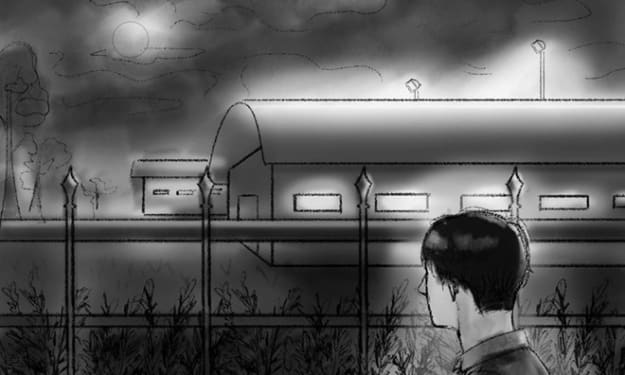How People Who Don't Have Sex Deal With The Pressure Of An Over-Sexualized Society
The amount of sex a person has varies throughout his or her life, and not having sex for a long time should not be a problem.

In fact, many people enjoy a full and satisfying life of sexual abstinence. Why, though, most people feel pressured not to go too long without sex
Living in singleness is one thing, living without sex is quite another. So perhaps we should ask ourselves: can emotionally healthy people live intentionally without having sex? Or do humans have an inherent need to pair up and get "hands on"? Shouldn't single people, at least occasionally, have affairs, dates, casual sexual encounters, anonymous connections, and the like?
The answer is that it depends on the individual. For example, some perfectly healthy people live alone and have sexual desires, but feel that being sexual with someone else is too much.
Other single people identify themselves as asexual, which means that they are not interested in sex at all, with anyone, no matter how physically and/or emotionally attractive the other person is. So, rather than being straight or gay or bisexual, these people are asexual. That's their sexual orientation.
And the fact that their friends and siblings and sometimes even their therapists don't understand that fact doesn't change it. Asexuality, say the specialists, is not necessarily a lack of desire for relationships, it is simply a lack of sexual attraction.
However, many people will be just as judgmental of those who choose to live single or those who prefer to be non-sexual, even if only for a while. These almost comical attempts at pathologizing tend to be more fervent when a person identifies himself as asexual.
"People think I can't be happy living like this. Those around me place a lot of importance on sex. They talk about sex as if most of their life is going by. It certainly makes me feel pressured, and often feels like I'm not a part of it. I also think it's interesting and fun at the same time," said Juana, 25, who hasn't had sex in about a year. Juana is a college student, has never had a boyfriend and has sporadic or no sex.

Sexual encounter is a fundamental part of interpersonal life. We feel the desire, the intensity of love and pleasure, we give ourselves to the other without losing our individuality and we have the innate capacity to project life in company; in short, the great challenge of being unique in an intimate shared experience. If this force called libido is inherent in the human, the repression or sublimation of it is acquired.
Demographically, there are more and more people in the world who choose a life without sex. In a study that analyzed data from 17,744 people in the United States, 15.2% of men and 26.7% of women reported not having had sex in the past year, while 8.7% of men and 17.5% of women reported not having had sex for 5 years or more. The authors concluded that "people who abstained from sex reported very similar levels of happiness to their sexually active counterparts.
Consultation for lack of desire is very frequent, sometimes due to inhibition and distress, and in other cases due to over-adaptation to social work demands and lack of access to pleasure. Both in youth and in middle age, the absence of eroticism and sexuality is a frequent symptomatic disorder.
As the expert warns, sexual interest can be repressed by frustrating experiences, trauma, shame, resentment, lack of communication, inability to show affection, etc. Sublimation is the diversion of sexual force for other interests that are also satisfactory: work, study, child rearing or shared activities. In both cases (repression and sublimation) the motivational force of sex loses its strength and ceases to be a priority. But it remains latent.
For the psychoanalyst Fiorella Litvinoff, we live in a society that is hyper-sexual in the sense of the circulation of pornography and the constant exposure of sexuality, and this can generate a loss of erotic desire. "Everything is so visible that it seems to lose value. The need to face a love conquest increases the desire. At the same time, feeling that the other person only wants to satisfy himself sexually and without taking into account the subjective register and affection, then this ends up pushing people away", the specialist said.
However, for Juliet (23), a young woman who has only had sex once in her life, the freedom with which people express themselves about their intimacy, the details they use and the absence of modesty make their desire to do so increase. "Not practicing it feels like a mixture of, on the one hand, feeling alienated. I don't understand that need, that desire and that passion with which people refer to sex. And on the other hand, listening to others makes me want to experience it. For people to talk about it, to naturalize it, it's a push to not demand, not pressure and encourage me," he revealed.
Celibacy vs. asexuality

Asexuality and celibacy are not the same, although they are related. Not all asexual people are celibate, and not all celibate people are asexual. Asexuality means that a person does not experience sexual attraction and does not feel the desire to have sex.
Celibacy, on the other hand, refers to abstaining from sex for a specific period of time or forever. Celibacy can be a choice or the product of circumstances, while asexuality is not a choice.
Asexuality is a sexual orientation, and it exists on a continuum. Some people who are asexual do not desire sex at all, while others occasionally experience some desire. Some people only want to have sex when they are in a safe, loving relationship, which is known as being demisexual.
Some asexual people experience romantic feelings and a desire for a romantic relationship, while others do not. Experts refer to those who do not have this desire as aromatic. Some asexual people choose to have sex.
They may make this decision to please a partner, to conform to social norms, or because they fear that their identity is not valid.
"Sex and sexuality are nourishment for self-esteem and self-worth."

"Sex and sexuality," Ghedin continued, "are food for self-esteem and self-worth. Feeling good about yourself is the first step to being good about the other and to better cope with life as a couple.
However, there are people in whom the focus of attraction is not sex (asexual) and others who maintain a low sexual desire throughout life or after stages of satisfactory sexual desire.
There is no one measure of sexual desire, it is unique, specific to each person, and subject to ups and downs. Networks and media put sex on display, it is exposed as the ultimate expression of pleasure, but what happens in the over-sexualized environment does not happen in intimacy. Still 'in bed' there are inhibitions, repressions, questions about what is right and wrong or what a man or woman should do.
There is a widespread idea that having regular sex is an important part of a person's emotional well-being. While this is true for some people, it is not the case for everyone. When sexual abstinence is involuntary, some people may feel negative effects on their mental health.
Conversely, people who do not feel sexual desire may find these feelings distressing. People may abstain from sex for many reasons, including having low sex drive, being asexual, or simply choosing not to participate in sex.
However, research reports that sex is a good stress reliever, has the power to improve mood, reduce body shape, and increase longevity. How not having sex can affect the body varies depending on a person's health or age.
For healthy people who have only stopped having sex because of the lack of a sexual partner or as a result of a conscious choice (and not for any other physical reason), they may experience some harmful physical and psychological changes. Among them, those who abstain from sex begin to feel slower and less vital.
People with low sexual desire may feel that, in the face of a hyper-sexualized society, they do not meet the expected parameters, which makes them uneasy about not being up to the task.
People who declare themselves to be asexual are those who live with fewer problems expressing their desire. They feel confident in facing a society that presses to reaffirm that the attractiveness of the body (ideal of beauty), seduction and sexual desire are essential for all love contact.
Beyond the group or collective of asexual, there are more and more people who live their low sexual interest without problems, that is to say, they do not feel guilt nor reproach themselves for not having desire, they live it as a feeling of congruence.
The difficulty in finding a partner or the wear and tear of being exposed to disappointing dates are valid reasons to sublimate sexual energy into other more satisfying activities.
About the Creator
creatorsklub
I write about tips and strategies for enhancing life. Some advice and insights because life is already to hard to be alone on it!
Enjoyed the story? Support the Creator.
Subscribe for free to receive all their stories in your feed. You could also pledge your support or give them a one-off tip, letting them know you appreciate their work.






Comments
There are no comments for this story
Be the first to respond and start the conversation.